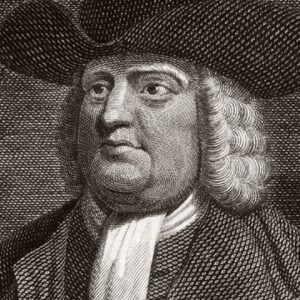Entrepreneur and philosopher William Penn helped plan the city of Philadelphia and formed the Province of Pennsylvania. He was raised in a noble household that enjoyed both great social standing and significant riches. He was brought up in the Anglican faith, but at the age of 22, he rebelled against its traditions and joined the new cult that George Fox had created, the Religious Society of Friends, or “Quakers.” The new religious sect refused to follow any man-made religious institutions and stayed away from the road of rites and tribulations. Admiral Penn, William Penn’s father, claimed that King Charles II owed him £16,000. In exchange for the money, William Penn received territory in the English colony that is now known as Delaware, New Jersey, and Pennsylvania. Penn’s ownership of the territory was formally acknowledged by the signing of the Pennsylvania Charter. Penn established his own state after acquiring legal rights from the Native Americans because he was a genuine democrat who valued their feelings. He adopted a new democratic system that guaranteed religious freedom and other fundamental liberties, which served as the foundation for the creation of the United States of America’s constitution.
Early Childhood & Life
William Penn was born on October 14, 1644, to wealthy Dutch trader Margaret Jasper and English Admiral Sir William Penn.
He attended Chigwell School before enrolling in a London private school on Tower Street in 1656. He had private instruction while he was a resident of Ireland.
He studied history and theology at Christ Church, Oxford, where he entered as a scholar in 1660. He got to know the Society of Friends, also known as the Quakers and eventually got kicked out of the university for participating in their activities.
Moses Amyrault, a renowned French academic and follower of the Reformed faith, then gave him private instruction.
He began his year-long studies at the Huguenot Academy in the fall of 1664, and he later visited France and Italy.
William Penn’s Career
He made the decision to practice law in 1665 at Lincoln’s Inn, Chancery Lane, London, and he started his legal profession in Ireland the following year.
In 1667, he was assigned to Carrickfergus to put down an uprising. He then went back to London. He converted to Quakerism the next year while living in Ireland and was later detained for attending a Cork Quaker meeting. He eventually left prison and went back to England.
When he met George Fox, the founder of the Quakers, in 1669, his father was furious and vowed to shun him. Because of his publication of the pamphlet “The Sandy Foundation Shaken,” he was detained and held at the Tower of London.
He relocated to Ireland and began practicing law after being freed. He was successful in setting the Irish Quakers free because of the influence of strong allies like Lord Arran.
Penn received a sum of £1500 a year from his father’s estate after his death in 1670.
In exchange for £16,000, which he owed to Penn’s father, King Charles II approved the charter establishing Penn’s possession of Pennsylvania in 1681. Penn established friendly ties with the Native Americans and gave them some money so they could claim the area as their own.
He became the governor of Pennsylvania in 1682. Two years later, due to political upheaval in England as well as legal issues involving his estates, he returned to England.
His manager in charge of his properties in England, Philip Ford, duped him into giving him the deed to Pennsylvania and signing him up to pay rent for the same.
After going bankrupt, Penn was unable to make his rent payments. When Philip passed away in 1702, his widow Bridget requested that Penn be put in debtor’s jail; however, when the case went to trial, Penn was given his province back.
His sons’ extravagant lifestyle put a strain on his finances, and in 1712 he had a string of strokes that eventually made him develop dementia.
Penn’s Bigger Works
William Penn wrote a treatise titled “The Sandy Foundation Shaken” in 1668 as a sequel to his first publication, “Truth Exalted.” The scathing criticism of all religions in this pamphlet—aside from “Quakerism”—led to his imprisonment in the “Tower of London.” Because of his outspoken beliefs and his explanations for why he thought “Quakerism” should prevail over all other forms of religion, this is regarded as one of his main works.
He was able to create a province in Pennsylvania, one of England’s colonies, to advance his Quaker beliefs thanks to his wealth and political influence.
He established a “Frame of Government,” a democratic framework that provided freedom of religion, separation of powers, and fair trials by a jury that played a crucial role in the drafting of the US Constitution.
Personal Legacy & Life
He fell in love with Gulielma Maria Posthuma Springett, the stepdaughter of Buckinghamshire Quaker Isaac Pennington, and they were married in 1672 at King’s Farm in Chorley Wood. Three sons and five daughters were born into the marriage.
Gulielma Springett passed away in 1694, and in 1696, when he was 52 years old and Hannah Callowhill was 25 years old, the daughter of a Quaker businessman from Bristol, he wed her. Eight of his offspring were born from this union.
At the age of 73, William passed away on July 13, 1718, leaving his second wife and her sons in charge of Pennsylvania.
Estimated Net Worth
William is on the list of the most popular and wealthiest politicians. From what we can tell from Wikipedia, Forbes, and Business Insider, William Penn is worth about $1.5 million.
Trivia
This Quaker, who had founded a province in America, wore a wig up until his college years to conceal the hair loss brought on by a smallpox infection he had experienced when he was a very young child.


